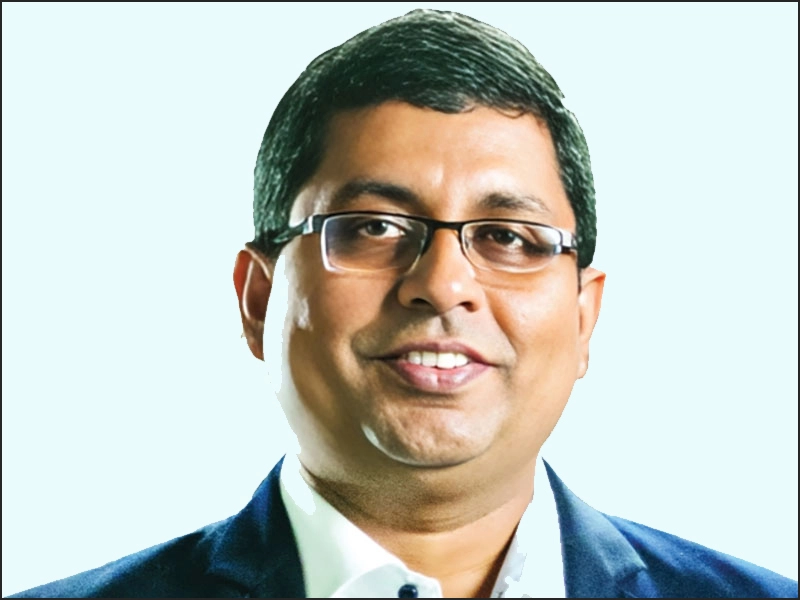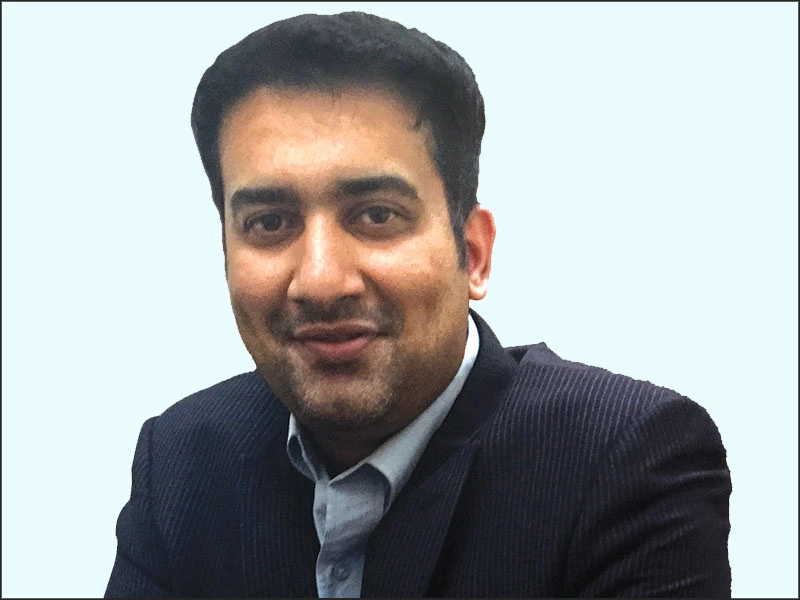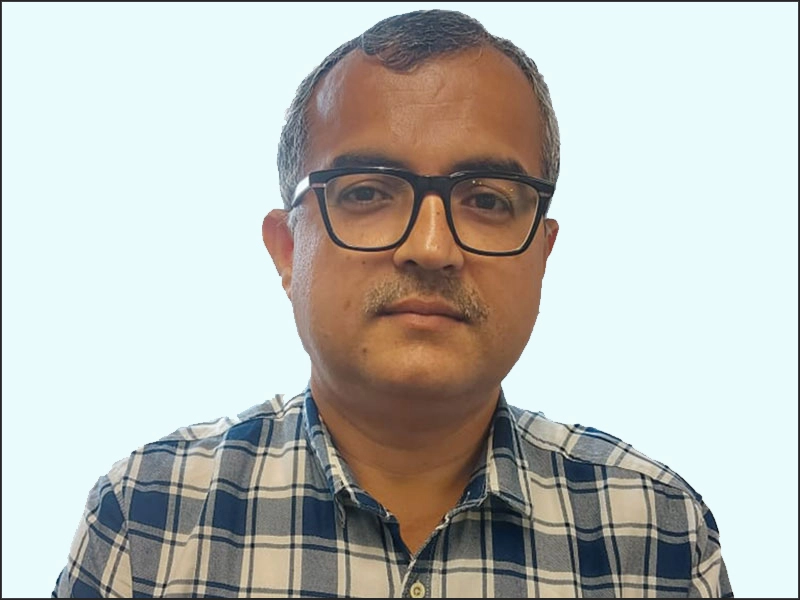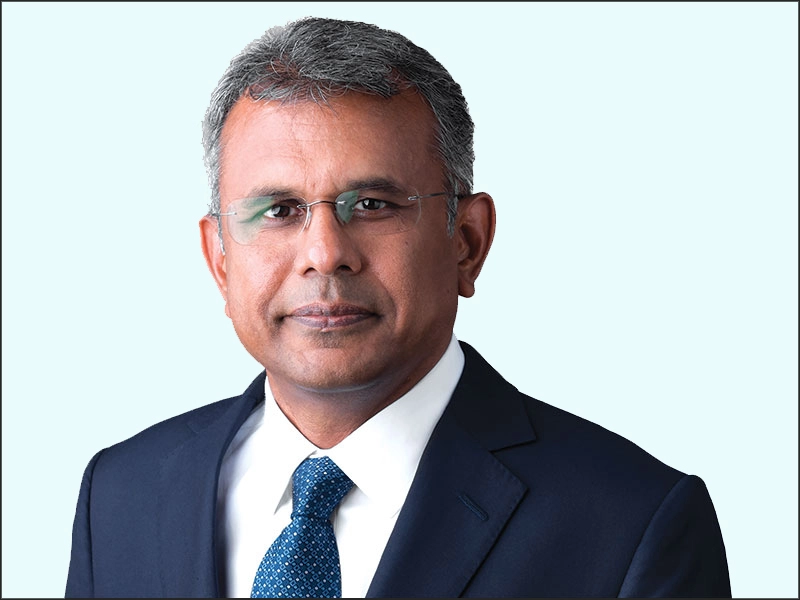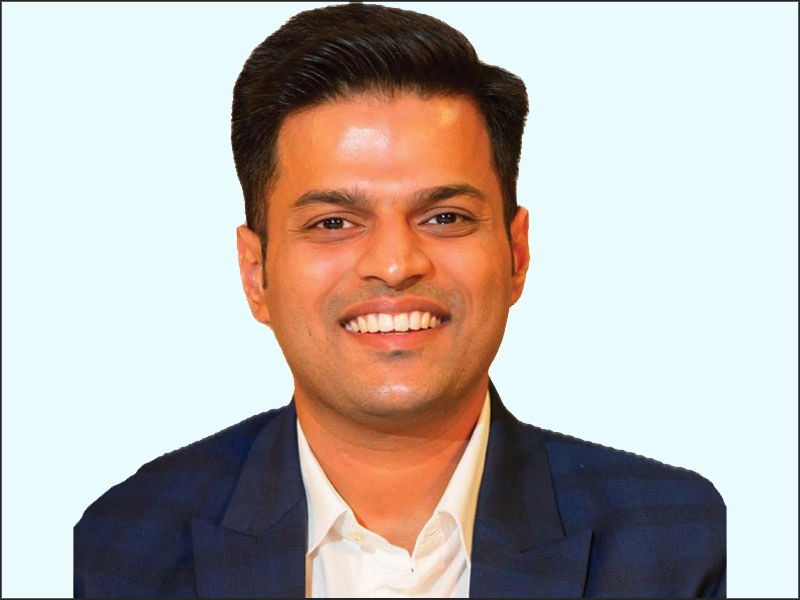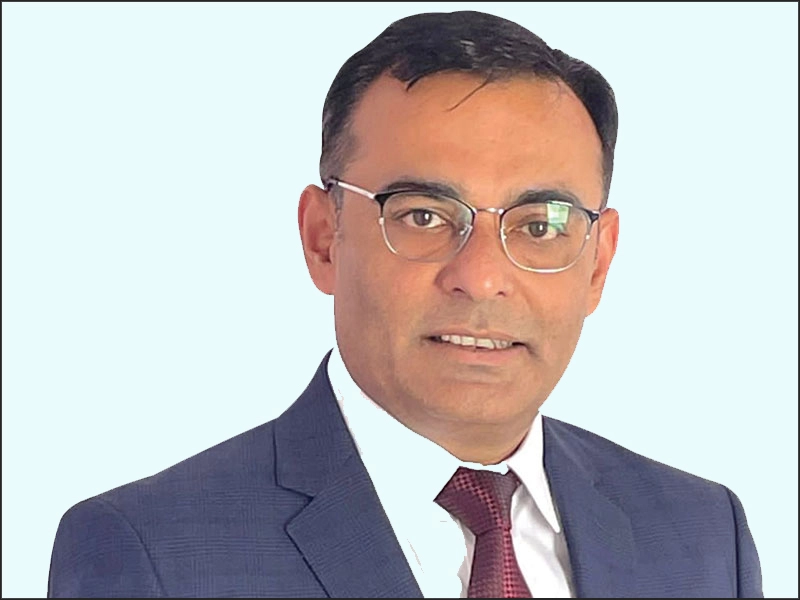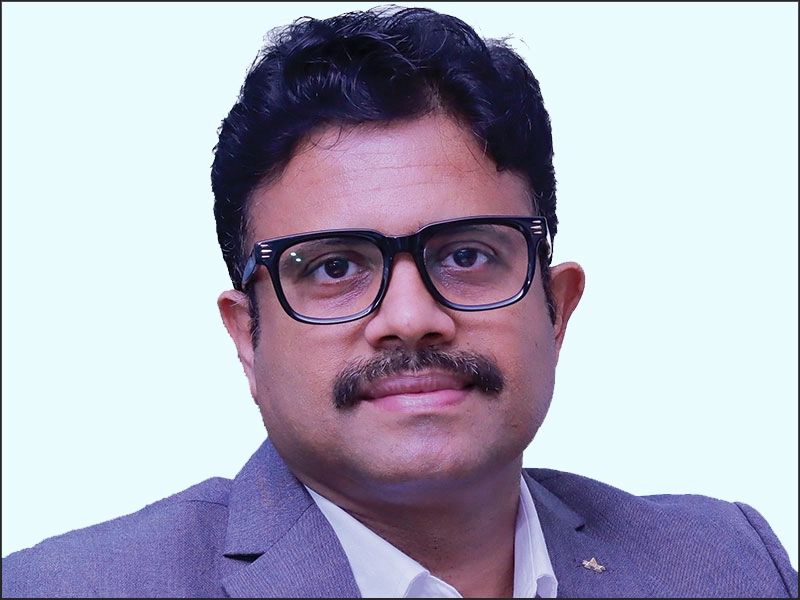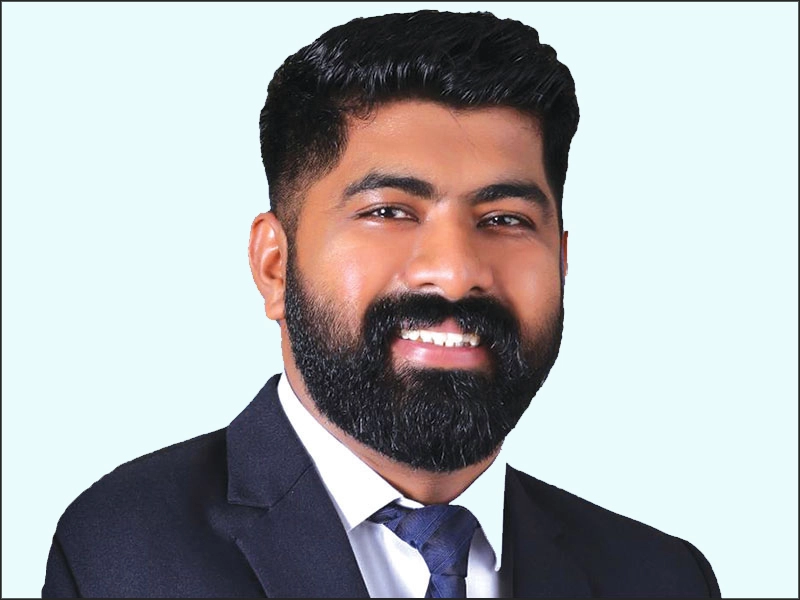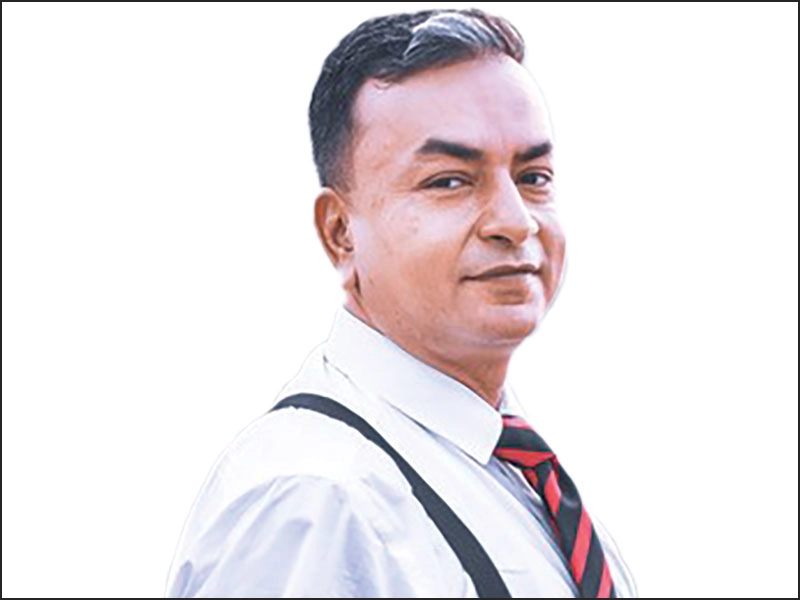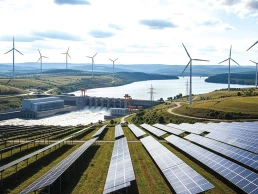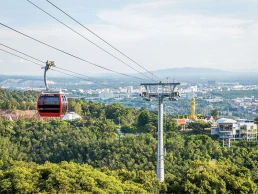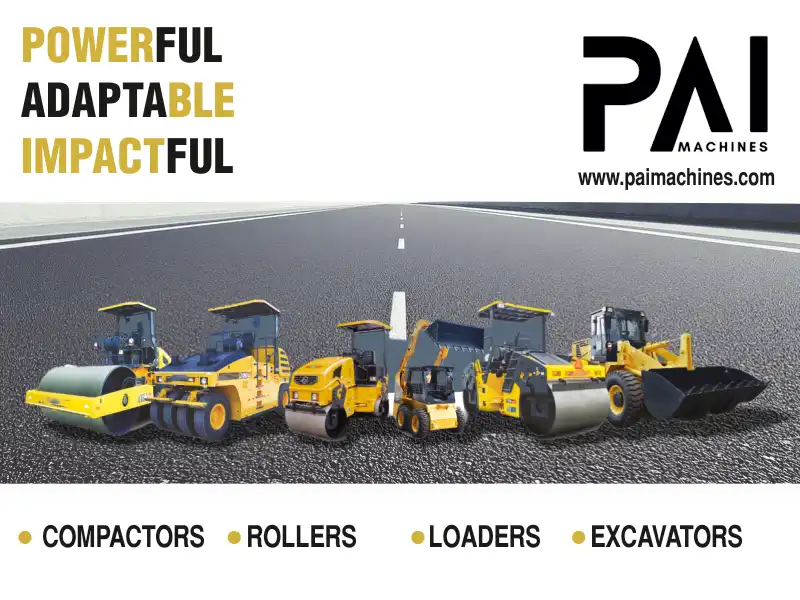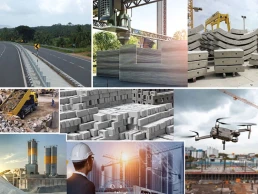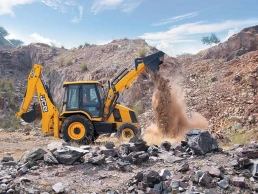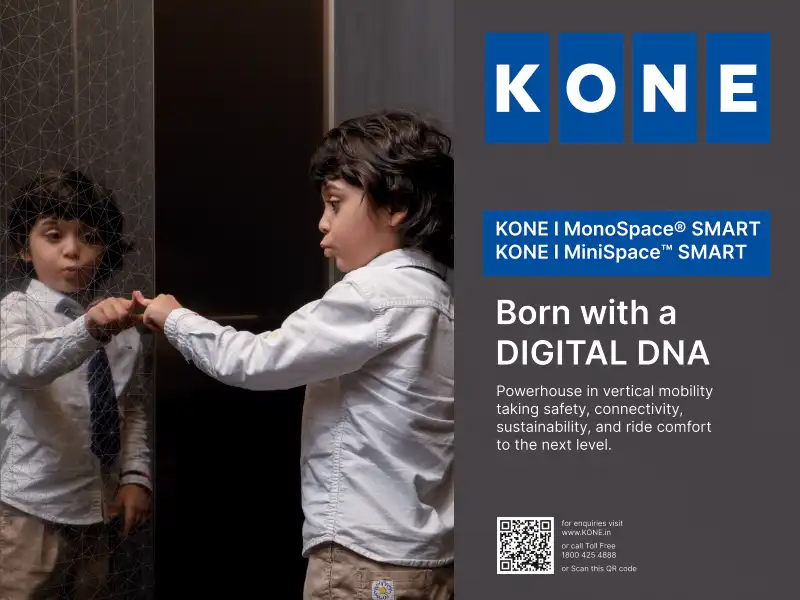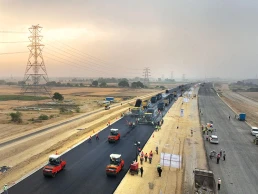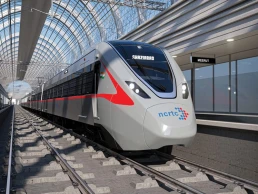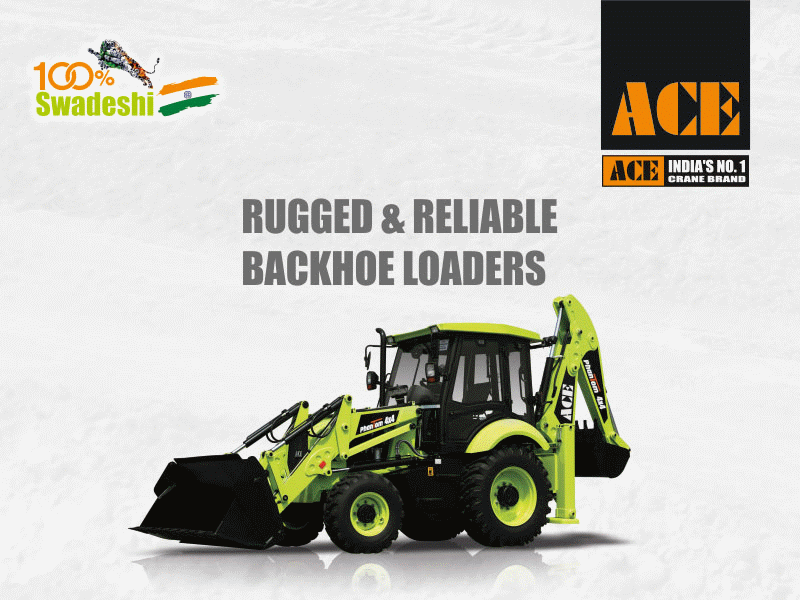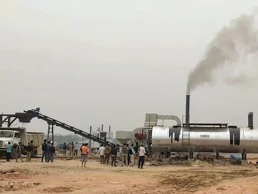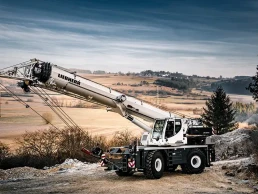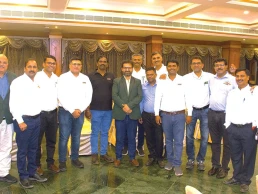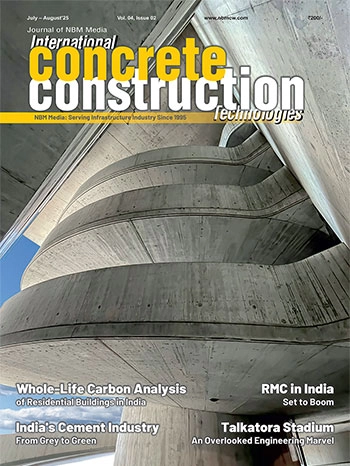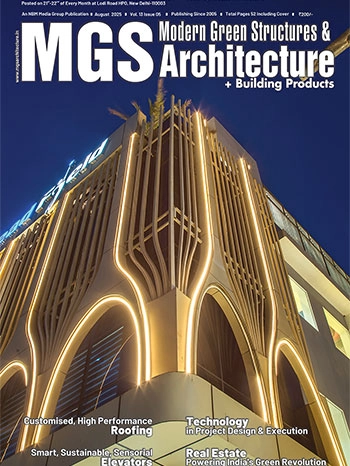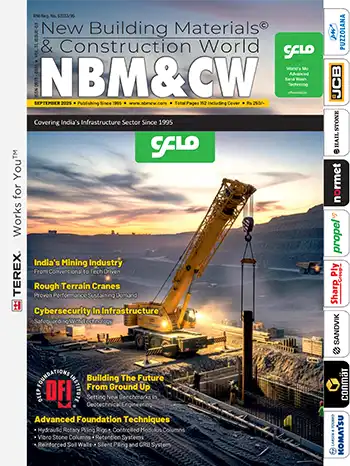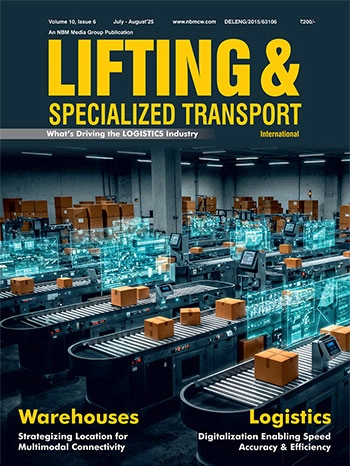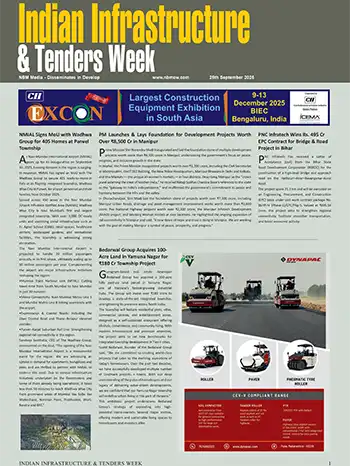Crushing & Screening Manufacturers Focus on Application Based Solutions
Crushing & Screening manufacturers are looking to expand their presence in the aggregates market by offering advanced models of grizzly screens, cone and jaw crushers, and vertical shaft impactors. The new models now come with improved design of the crusher chamber, increased head motion, greater power and force, and reduced service requirements, to deliver higher productivity and lowering the operating costs, even when working in tough terrains and on challenging site conditions.
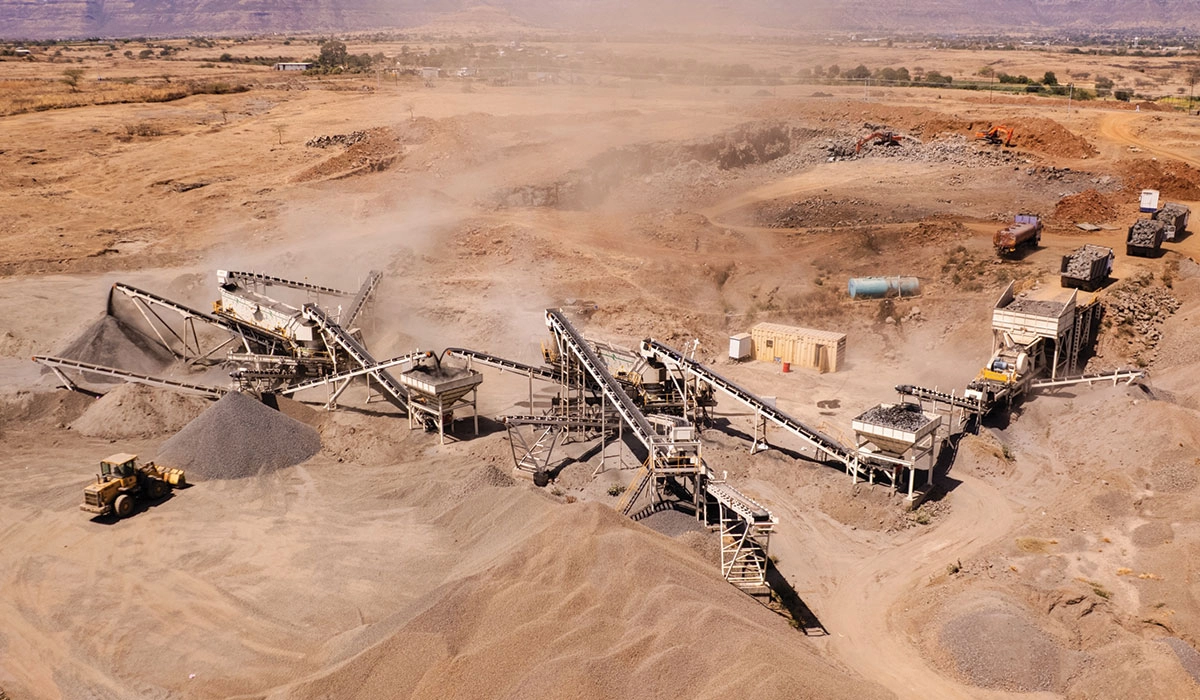
The mobile, track-mounted plants, and skid-mounted plants, which continue to gain increasing acceptance, are being designed for ease of transportation and faster setup, with advancements being made in the tracks, diesel-electric drives, and optimizing the hydraulics.
The products are designed to cater to the emerging operational and throughput needs of road contractors and quarry owners, who are increasingly looking for application-based solutions rather than standalone products—with manufacturers expanding their range of capacities in this segment to cater to varied application requirements.
Bringing more insights into the aggregates market are the contractors and the end-users of the crushing and screening plants. They share their experiences and challenges, the factors that guide their product and brand selection, and their expectations from the OEMs as regards improvements in the products and services.
NBM&CW takes a look at what’s new in the market.
Terex Materials Processing: Jaideep Shekhar
▼
We offer tailor-made combinations of crushing, screening, and conveying units designed around site layouts, tonnage requirements, and desired end-product specifications.
Jaideep Shekhar, Managing Director - Terex India
As Terex expands its presence in the aggregates market, what advancements has the company made in its grizzly screens, cone and jaw crushers, and vertical shaft impactors?
We are consistently strengthening our portfolio to address emerging customer requirements across the aggregates market. Our advanced grizzly feeders are designed for efficient primary scalping and enhanced separation accuracy, while our latest generation of cone and jaw crushers offer higher throughput, superior reduction ratios, and improved chamber designs for optimal wear life.Our engineering focus has been on integrating modern chamber geometries which enable higher crushing force and increased inter-particle crushing, thereby delivering superior product shape and consistent performance. The latest chamber designs also support multiple liner configurations, making our crushers adaptable to varied applications.
In our vertical shaft impactors, we’ve focused on versatility — allowing producers to process a wider range of feed materials and achieve better control over product shape and gradation.
In addition, improved hydraulic systems and smarter control technologies have helped reduce service interventions, while modular components allow for quicker on-site adjustments and maintenance, ensuring higher machine availability and operational efficiency.
All these enhancements are aligned with our aim to deliver application-driven, reliable, and energy-efficient solutions to our customers.
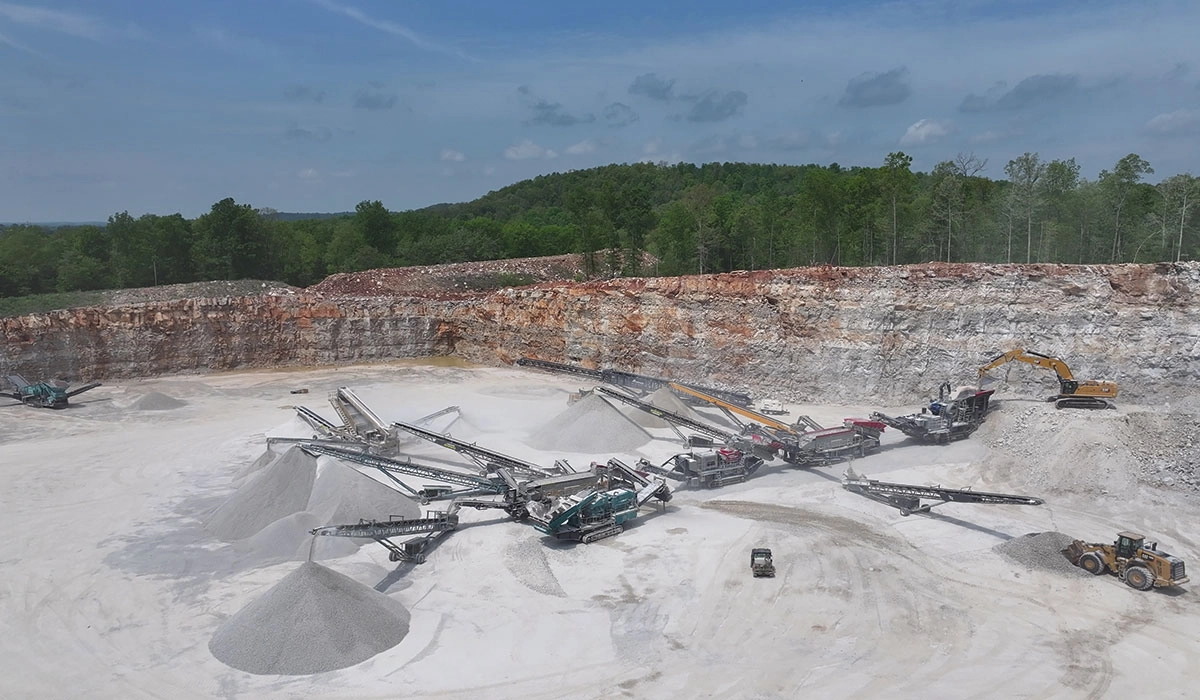
Based on the operational and throughput needs of road contractors and quarry owners, how are you positioning yourself to offer application-based solutions rather than standalone products?
Today’s customers expect integrated, flexible solutions over isolated equipment. Terex India’s offering reflects this shift — our modular and mobile plants are engineered as complete process solutions for specific applications like road construction aggregates, railway ballast, and manufactured sand. Modular plants offer greater scalability, tailored layout adaptability, and ease of expansion, while mobile solutions deliver operational agility for projects requiring frequent relocations. We offer tailor-made combinations of crushing, screening, and conveying units designed around site layouts, tonnage requirements, and desired end-product specifications.How are Terex mobile and skid-mounted plants being designed for ease of transportation and faster setup?
Ease of logistics and rapid site readiness are key design priorities for us. Our mobile and skid-mounted plants feature compact layouts with integrated walkways, hydraulic folding conveyors, and plug-and-play control panels. The track-mounted units are designed for hassle-free transport on standard trailers and offer tool-less setup features wherever possible. For skid-mounted options, we’ve streamlined modular frames and standardised foundation requirements to reduce setup time and simplify commissioning. The focus is on reducing downtime between project mobilisations while maintaining structural robustness and operational reliability.In fact, we have been actively expanding our mobile and modular crushing & screening portfolio to meet evolving industry demands. Terex has launched its new brand, MAGNA, which is exclusively focused on large-scale machines. MAGNA crushers and screens are designed to handle upto 1,000 TPH capacity, and all machines are fully mobile on tracks, ensuring operational flexibility. A key advantage of MAGNA machines is their rapid deployment.
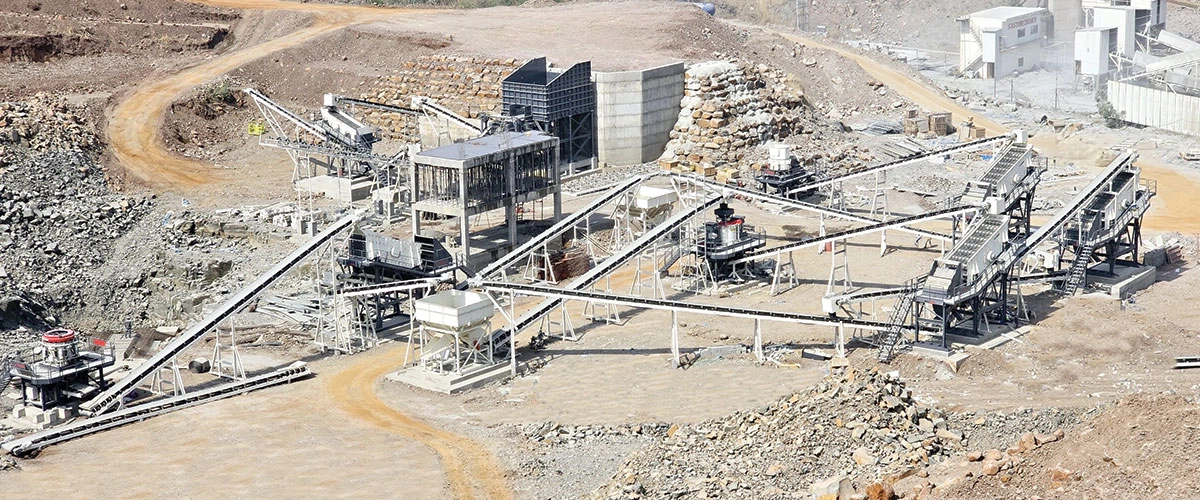
What advancements have been made in the tracks, diesel-electric drives, and hydraulics of your mobile machines for quicker transportation at project sites?
Our mobile crushing and screening solutions are constantly evolving with the latest drive technologies to enhance efficiency and reliability. Our new-generation mobile plants are equipped with modern transport engine drive systems, operating exclusively on external power, which ensures greater reliability, reduced maintenance, and optimized performance for uninterrupted operations.Terex has introduced crushers with a variety of drive systems, including Direct Drive, Hydrostatic Drive, Hybrid Drive, Electric Drive, Transport Engine Drive, and Dual Power system. Each drive system offers distinct advantages, allowing us to provide customers with machines best suited to their operational environment and available resources. Additionally, intelligent hydraulic systems minimize energy loss, improve equipment responsiveness, and enhance precision in mobile crushing operations. These innovations enable faster deployment, reduced downtime, and greater efficiency, making Terex crushers and screens ideal for high-production environments.
What are the latest maintenance and service deliverables of Terex?
Recognizing the critical role of service in plant productivity, we’ve introduced several customer-focused service deliverables. These include modular wear part kits, simplified hydraulic access points, and integrated digital monitoring tools for real-time machine performance tracking. Our remote technical assistance and field support have also been ramped up, ensuring quicker troubleshooting and spares availability. Preventive maintenance schedules are now customized for application-specific operating conditions, minimizing unplanned downtime and extending component life cycles.
Cube Highways Technologies: Arpan Ghosh
▼
"OEMs must focus on rugged design, easy operation, and quick maintenance access to meet evolving site demands and sustainability goals."
Arpan Ghosh, President - Engineering, Cube Highways Technologies
What key technical considerations guide your selection and configuration of crushing and screening plants for your projects?
We focus on several critical parameters to ensure that the crushing and screening setup delivers optimal performance at the project sites. Use of Vertical Shaft Impactors (VSI) or well-configured cone crushers is prioritized, as they produce cubical aggregates with better interlock and lower void content, which is key to enhancing mix stability, workability, and rutting resistance in bituminous layers like DBM, BC, and SMA.The crushing circuit must be designed to minimize excessive fines, which can negatively impact hot mix designs. The output gradation from the plant must match the feed gradation required by the hot mix plant bins. Lastly, maintaining Flakiness Index (FI) and Elongation Index (EI) within specified limits is essential, as it contributes to better compaction and improved load-bearing capacity of the pavement.
How are dual-power mobile and track-mounted crushing and screening plants supporting RAP processing and sustainable road construction in India? What has been your experience in terms of operational efficiency and environmental compliance?
The use of Reclaimed Asphalt Pavement (RAP) is steadily gaining traction in highway construction and maintenance across India, driven by cost efficiency, sustainability goals, and strong policy push from MoRTH and NHAI. RAP enables the reuse of aged bituminous materials, significantly reducing dependence on virgin aggregates and bitumen—both economically and environmentally vital. Horizontal Shaft Impact (HSI) crushers have emerged as a key solution for RAP processing, effectively breaking down asphalt chunks, liberating bitumen-coated aggregates, and delivering cubical, well-graded material ideal for reuse in DBM and binder layers.Mobile HSI crushing plants have added tremendous operational flexibility, particularly in urban and highway milling projects, by enabling on-site RAP processing. This has led to reduced transportation costs and better material quality control. In regions like the NCR, where pollution norms are stringent, the use of electric-powered mobile screening and crushing units is becoming increasingly important. These low-emission systems meet environmental regulations while also contributing to quieter, cleaner, and more sustainable construction practices.
As part of Cold Central Plant Recycling (CCPR), more than 6 lakh tonnes of RAP has been processed using three track-mounted screening plants—two diesel-powered and one electric—along with one HSI crusher. This experience reflects the high efficiency and versatility of mobile units in achieving circular economy goals within infrastructure development.
What would you like to suggest to the OEMs as regards crusher design and functionality?
OEMs must continuously innovate to provide crushers with simplified operation, rugged design, integrated safety features, and easy access to wear parts to meet the evolving customer needs and operational challenges.
Puzzolana Machinery Fabricators: Abhijeet Pai
▼
Our track-mounted plants of larger capacities, engineered for large-scale infrastructure and mining projects, provide a versatile solution for operations requiring both power and flexibility in tough working conditions.
Abhijeet Pai, President, Puzzolana Machinery Fabricators (Hyderabad) LLP
What advancements has Puzzolana made in its grizzly, cone and jaw crushers, and in its vertical shaft impactors?
Our products feature cutting-edge designs for higher efficiency, superior output quality, and reduced operational costs. These advancements reflect our commitment to innovation and performance. To give a few examples, our new generation Bolted Design Jaw Crusher is engineered with a robust bolted design and zero weldments for reducing fatigue failures, and enhancing ease of maintenance. This jaw crusher has increased durability and is optimized for higher throughput in demanding applications.Our robust Fixed Shaft Cone Crushers come in various sizes and in two different frame designs to suit different crushing stages, ensuring reliable performance and improved capacity. These Fixed Shaft Cone Crushers are engineered with larger strokes (head motion), enabling higher crushing force and increased throughput. This results in the production of superior-quality aggregates with improved shape and gradation, suitable for demanding infrastructure and mining applications.
Our Pressurized Roll Press for Sand Production is designed for efficient sand manufacturing. This system applies high pressure to reduce oversize materials while limiting ultra-fine generation for better quality output. Puzzolana VSI crushers featuring precision control over particle shape and size, are ideal for producing premium cubical aggregates and manufactured sand.
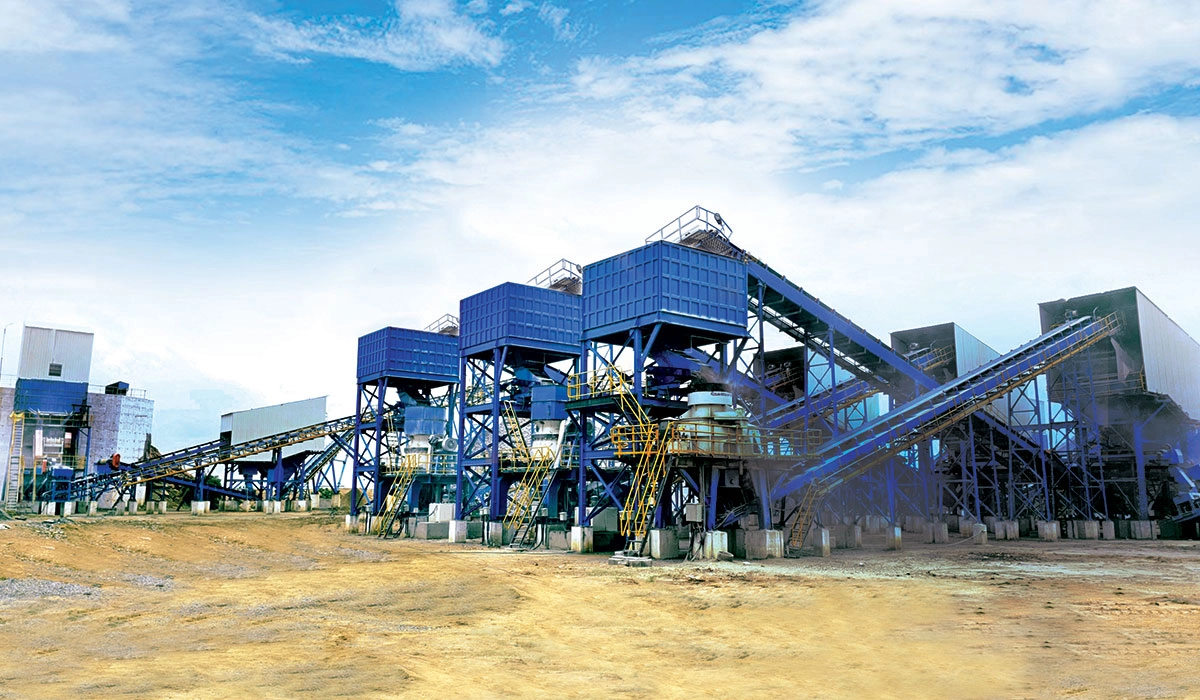
How are the company’s mobile and skid plants being designed for ease of transportation and faster setting up?
Mobile plants on tracks are easily transportable, offering high mobility. Semi-mobile plants are now delivered as fully mobile units with hydraulic cylinders, significantly reducing erection time and minimizing the need for cranes. Modular skid-mounted plants continue to evolve with ongoing enhancements aimed at minimizing setup time.We have introduced Track-Mounted Plants of larger capacities which complement our existing range of standard capacity models. These high-capacity units are designed to meet the growing demands of large-scale infrastructure and mining projects, offering enhanced mobility, faster deployment, and superior productivity on-site. With advanced crushing and screening configurations, they provide a versatile solution for operations requiring both power and flexibility in tough working conditions.
The new additions include 350 TPH plants tailored for large-scale contractors. For remote locations with transportation challenges and lower production needs, compact 150 TPH plants are being developed to suit smaller contractors.
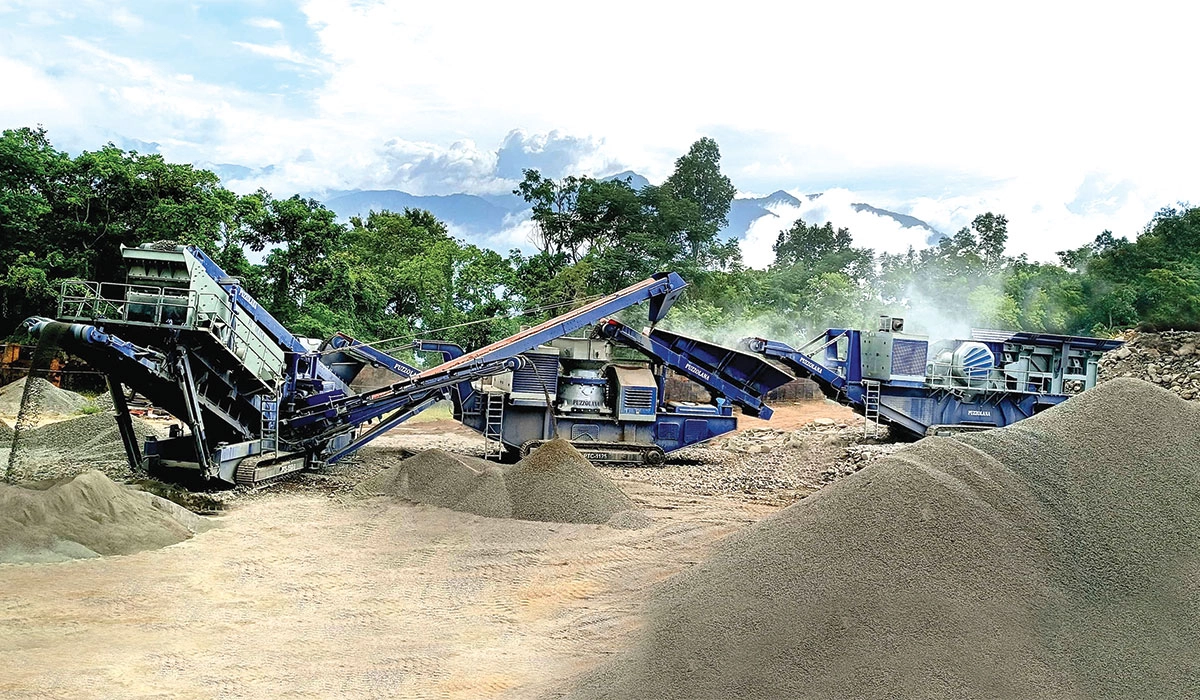
What advancements have been made in the diesel electric drives and hydraulics?
Puzzolana introduced the Diesel-Electric drive system for track-mounted crushing and screening plants, setting a benchmark for fuel efficiency and operational flexibility. We continue to enhance the system by integrating advanced Programmable Logic Controllers (PLCs) and telematics. These upgrades enable real-time monitoring, diagnostics, and performance analysis, empowering end-users with actionable insights to optimize productivity, reduce downtime, and plan maintenance more effectively.Our focus on making advancements in our products reflects our commitment to delivering intelligent, energy-efficient, and user-friendly solutions for modern crushing applications.
What are the newer maintenance and services deliverables of Puzzolana?
Puzzolana offers comprehensive maintenance and service solutions to maximize machine uptime and performance. Key deliverables include predictive maintenance through real-time monitoring systems, quick-change wear parts for reduced downtime, and remote diagnostics support. These services ensure efficient operation, lower ownership costs, and improved machine longevity.
G R Infraprojects: Radha Raman Jha
▼
"We expect OEMs to provide hands-on training for our operations and maintenance teams to ensure smooth and efficient plant handling. What’s more, offering repair options for high-value components can significantly cut costs, extend equipment life, and support our vision for greener, more efficient project execution."
Radha Raman Jha, Deputy General Manager, G R Infraprojects
What factors do you consider when selecting a crushing and screening plant?
We evaluate multiple technical and project-specific parameters when selecting a crushing and screening plant. These include the nature and quantity of the required product, the type and scale of the project, the characteristics of the feed material, and the desired production capacity. Additional factors such as power requirements, the expected duration of crushing operations, site location and terrain, and the type of plant—whether fixed, mobile, or skid-mounted—are also assessed. Equally important is the selection of a reliable OEM, whose service history and product performance play a critical role in ensuring long-term operational success.What challenges have you faced while operating your plants?
While manufacturers generally provide timely assistance with wear parts and service deployment, we have observed notable delays when it comes to sourcing critical imported components—especially hydraulic and electrical parts. This remains a concern, since such delays directly impact plant availability and project timelines. Consistent and dependable after-sales support is not just expected—it is essential. We look forward to OEMs addressing these gaps more proactively to ensure sustained equipment performance and reliability across operations.To what extent are you adopting digital or automated technologies to enhance plant uptime and efficiency?
Automated technologies have become an integral part of our operations. Features such as remote fault diagnostics, predictive maintenance alerts, and real-time performance monitoring allow us to minimize breakdown time and maximize equipment availability. These tools contribute significantly to operational efficiency, ensuring that production goals are met consistently and sustainably across project timelines.What are your expectations from manufacturers in terms of after-sales service, customization, training, or digital integration?
We place high importance on robust after-sales support and expect OEMs to provide frequent hands-on training for our operations and maintenance teams to ensure safe and efficient plant handling. Additionally, we suggest that manufacturers offer repair options for expensive parts, particularly hydraulic and electrical components, instead of mandating full replacements. This approach would reduce costs, improve equipment lifecycle value, and help reduce waste—aligning with our broader goals of greener, more productive project execution.
Propel Industries: V. Senthil Kumar
▼
Our crushers are being tailored for global markets, with design modifications that comply with EU standards and regulations, enabling us to supply customized solutions for customers across export markets.
V. Senthil Kumar, Managing Director, Propel Industries
What design modifications and upgradations has Propel made in its grizzly feeders, cone crushers, jaw crushers, and vertical shaft impactors (VSIs)?
All our products are engineered for superior performance and reliability. Notably, the crushers are being tailored for global markets, with design modifications that comply with EU standards and regulations. This ensures that our equipment is not only robust and efficient but also competitive, enabling us to supply customized solutions for customers across export markets.We have further upgraded our advanced cone crusher to 600 TPH, while also broadening our offerings to cover a full spectrum of capacities ranging from 150 TPH to 600 TPH. This will ensure that we can meet the diverse requirements of our customers, from large-scale to small-scale infrastructure projects, and even specialized operations.
Propel's latest crusher chamber designs incorporate optimized geometries and material selections to maximize throughput, improve particle shape, and reduce wear. The company is offering customizable chamber options, allowing customers to select configurations based on the specific aggregate types, desired output, and cost considerations.
Further advancements include the use of high-strength alloys and wear-resistant materials in critical components, extending operational life and reducing maintenance intervals. Additionally, innovations in wire mesh and wear part designs are tailored to the unique demands of each application, ensuring optimal performance and longevity.
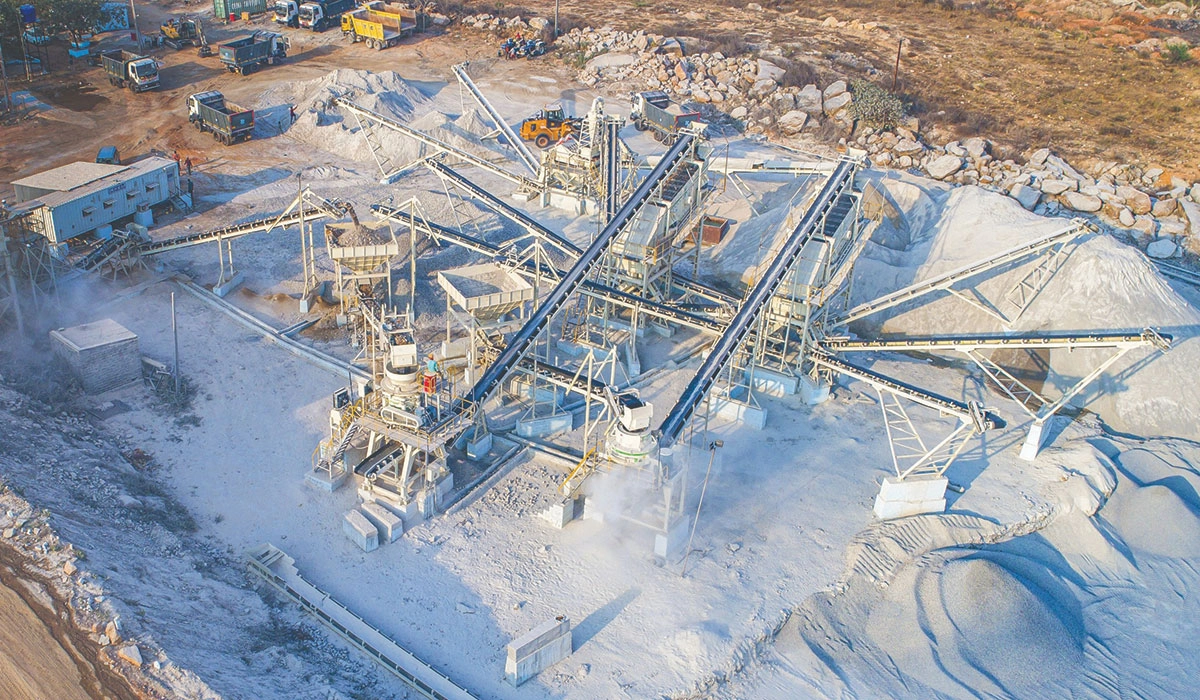
There is an emerging demand for application-based solutions over standalone products: how is Propel responding to this?
Recognizing the evolving operational and throughput requirements of road contractors and quarry owners, Propel has shifted from offering standalone products to delivering comprehensive, application-based solutions. Our mobile and semi-mobile plants now cover capacities from 250 TPH up to 350 TPH, while our skid-mounted solutions have expanded from 500 TPH to 1000 TPH, catering to high-volume operations.These modular solutions are designed for rapid deployment and easy integration into existing workflows, enabling customers to scale their operations efficiently. The plants offer flexibility, reliability, and cost-effectiveness, helping clients achieve higher productivity and faster returns on investment.
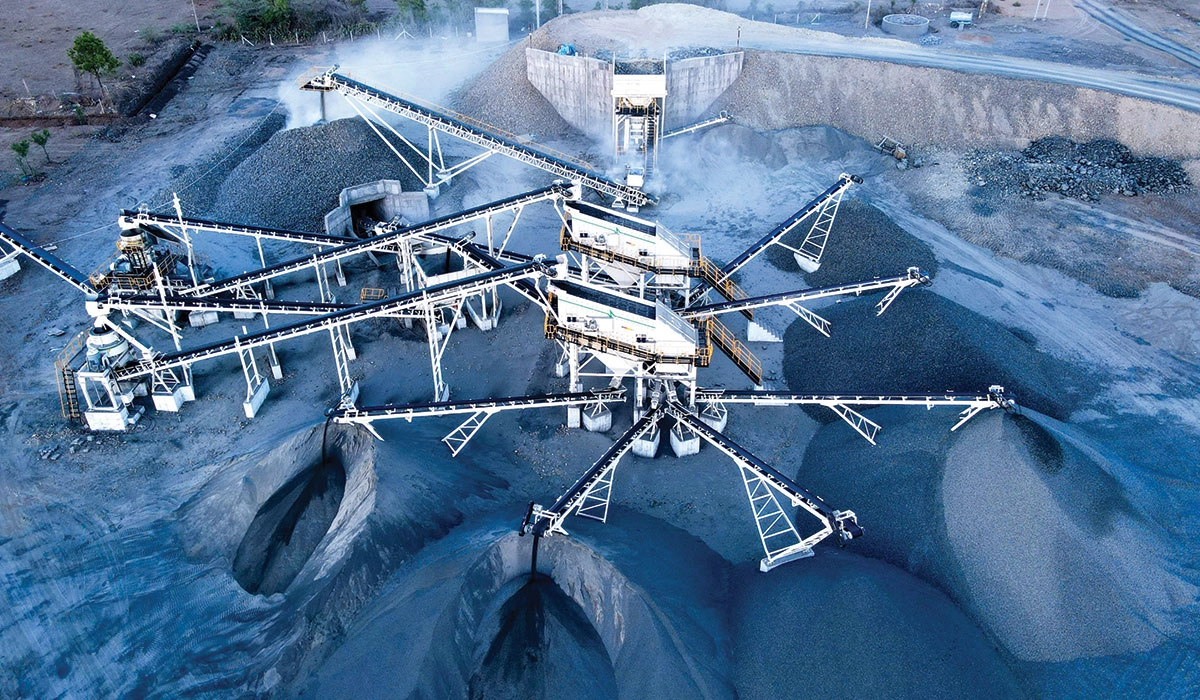
How is Propel meeting the increasing demand for mobile track-mounted crushing solutions?
The demand for mobile track-mounted crushing solutions continues to rise, driven by the need for flexibility and on-site mobility. Propel has responded by introducing 350 TPH secondary and tertiary crushers in this segment, with plans underway to launch primary crushers to the product lineup. Our track-mounted solutions are designed for heavy-duty applications. These deliver consistent performance in challenging working conditions. They are equipped with advanced control systems, robust tracks for enhanced mobility, and energy-efficient drives, making them ideal for customers seeking to maximize uptime and operational efficiency. These elements are particularly effective in today’s fast-paced construction environment, where project timelines are increasingly compressed.For greater ease of transportation and faster setting up, Propel’s mobile plants are engineered within standard transport dimensions and weight limits, ensuring hassle-free movement across sites. Their innovative design enables installation and commissioning within 30 to 45 minutes, minimizing downtime and allowing customers to commence production almost immediately. Key features include quick-connect hydraulic and electrical systems, advanced user interfaces, which contribute to seamless setup and operation.
What technological advancements has Propel introduced in its mobile machines?
To ensure higher availability and quicker transportation of mobile machines, Propel has introduced several technological advancements. Propel's semi-mobile series now features wheels and trailer attachments for easy relocation, while the company's track-mounted units are equipped with remote controls, sensors, and wired systems for precise maneuverability.We have also adopted diesel-electric hybrid drives and optimized hydraulic systems. These not only reduce fuel consumption but also lower emissions and maintenance costs. These innovations enable customers to deploy and operate our equipment with greater flexibility and reduced TCO.
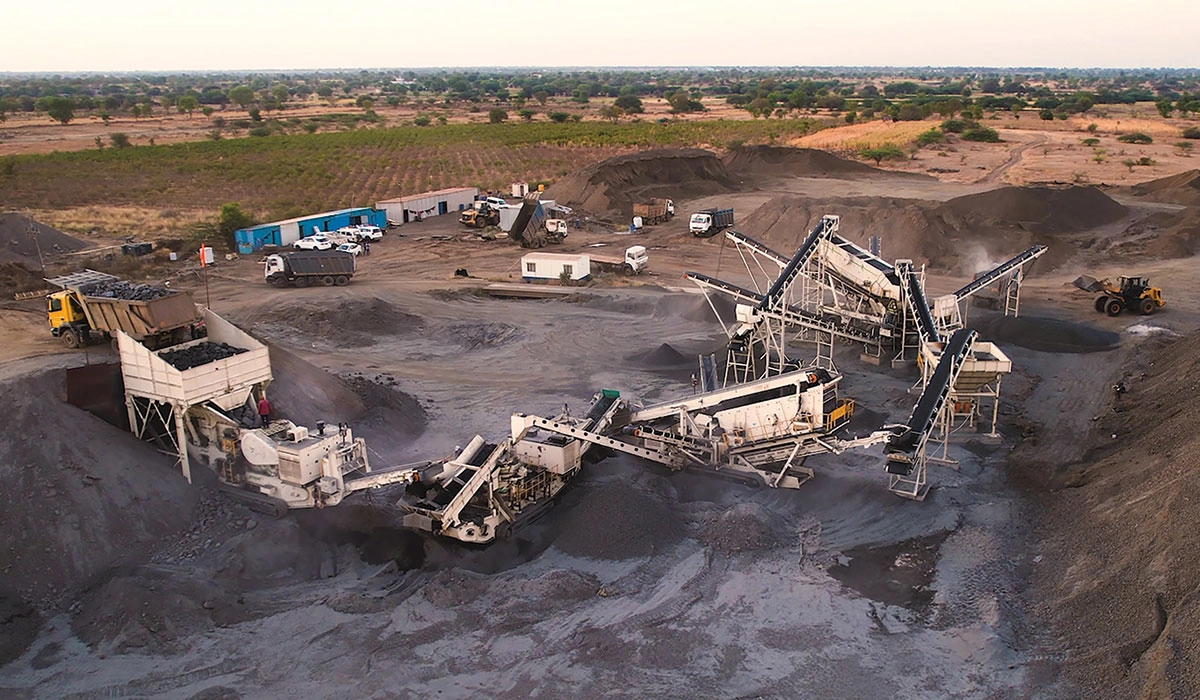
What maintenance and services does the company offer to its customers?
To support its customers, the company offers a comprehensive operation and maintenance contract (OMC) and an annual maintenance contract (AMC), which cover spare parts, skilled manpower, periodic production quality checks, and regular health and preventive maintenance audits. A warehouse network ensures prompt availability of critical spares, minimizing machine downtime and maximizing uptime.We are integrating high-tech features such as IoT-enabled monitoring and predictive maintenance tools for empowering customers with real-time insights and proactive service support. These initiatives underscore our dedication to delivering not just products, but complete, hassle-free solutions to our clients.
Maa Karni Infratech: Rohit Agarwal
▼
"OEMs should come up with a rental or lease-based model and also consider selling refurbished crushers as they would be more financially viable."
Rohit Agarwal, Director, Maa Karni Infratech
When selecting a crushing and screening plant what do you consider most?
Firstly, we see the geology and the surrounding conditions of the area where we want to do mining and crushing. Accordingly, we get the rock sample tested so as to determine the strength and abrasion.We prefer established crushing players in the market, who have a good market share and have served similar types of customers in similar conditions. Since service is of utmost importance to us, we prefer buying original spare parts from the OEM, including the consumables, which are crucial for determining the output and maintenance costs.
Fuel efficiency is assessed by the type and make of DG on which the crusher operates. So, it is not a big deal since it is similar for all brands of crushers. But now, we prefer electric crushers to save on diesel costs and at the same time promote an eco-friendly environment.
Capacity is also a major factor, which is calculated based on the project requirement and on our monthly and daily target of aggregate production. In highways, early bonuses by NHAI are of significant importance so we need to maintain sufficient aggregate stock for the timely completion of projects.
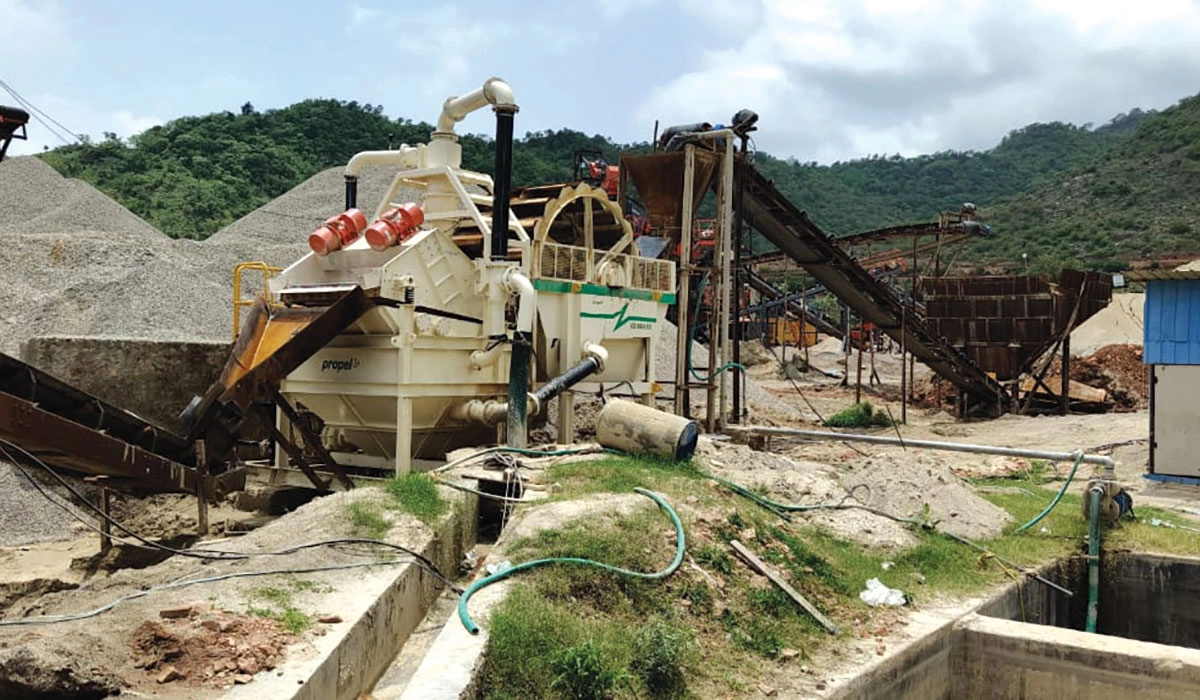
With manufacturers now offering mobile, skid-mounted, or track-mounted plants with dual power options, how has your experience been in terms of operational cost, flexibility, and efficiency?
Some manufacturers have come up with a new mobile crusher with dual power mode. For highway contractors like us, it has helped us drastically reduce setting up costs as compared to the fixed type of crushers. Also, for projects with lengthy coverage and longer distances, the mobile crusher reduces the transportation cost and time as it can be easily moved across the site in less time and involves no set up cost.Track mounted crushers can also be easily transported and set up in hilly areas, where it is difficult to set up fixed crushers.
What specific challenges have you faced while operating your crushing and screening equipment and what solutions have the OEMs come up with?
Major problems occur when a boulder gets stuck in the main jaw while operating the plant. This happens due to excess sand/silt. The other problem is the storage of aggregate due to limited land availability, forcing us to stop operations.However, the best part is that the OEMs have come up with a GSB Scalper and Stacker solution to tackle both the problems, respectively. This has not only resulted in reduced breakdowns but has also increased efficiency and production.
To what extent are you adopting digital or automated technologies to enhance plant uptime and efficiency?
Technology is about deploying automation and making the plant operations and processes less human driven. Certain telematics software and SCADA systems have given us a leading edge in operating crushers with ease and from a single point.Further, we get daily production reports at our head offices, which helps us in daily monitoring of production and also machine breakdowns, if any. Certain sensor-based technologies for monitoring diesel consumption, allows us to monitor and check pilferage, thereby improving cost efficiency.
What improvements or after-sales support do you expect from manufacturers?
A major concern these days is the rapid increase in crusher costs, which the manufacturers should look into, including the high cost of spares parts and consumables. To retain the customer, OEMs should provide more economical consumables to compete with off-market and third-party vendors.Since a customer expects quality products with more economical capital investments, OEMs should also come up with a rental or lease-based model. They can also explore the concept of selling refurbished crushers that are as good as new, as they would be more financially viable.
Apart from this, a per/ton aggregate production model can be developed by the OEMs to provide a single step complete solution, without taking the pressure of maintenance, repair, operation etc. in crushing and screening activities.
Sandvik: Asoktaru Chattopadhyay
▼
Sandvik’s broader goals of flexibility, sustainability, and user-centric design ensure that our machines are not only environmentally responsible but also practical and efficient in real-world applications.
Asoktaru Chattopadhyay, President – Sandvik Rock Processing Solutions, India & Pacific Regions, Sandvik
What does Sandvik’s portfolio comprise?
We are expanding our presence in the aggregates market by making certain advancements in our grizzly, cone and jaw crushers and in the vertical shaft impactors. Our Grizzly Feeders (SV, SG Series) now come with a robust design that ensures smooth primary feeding and effective scalping. Our Jaw Crushers (CJ Series) are high-capacity, low-maintenance primary crushers with proven reduction ratios.Our Cone Crushers (CH, CS Series) are reliable secondary and tertiary crushers with automation (ACS) for optimized performance. Our VSI Crushers (CV200 Series) with rock-on-rock technology, deliver superior cubical shape, and are ideal for M-sand production. Our SmartScreen™ systems have an efficient classification and modular plant design.
These solutions are engineered for high uptime, quality output, and operational efficiency — enabling us to serve emerging segments like M-sand, road construction, and turnkey crushing setups effectively.
For wider applications, what improvements have been made in the design of the crusher chambers for higher head motion, more power and force, and less maintenance?
Sandvik has introduced several key innovations across its crushing portfolio. For instance, the Crusher Chambers (of CJ, CS & CH Series) have an enhanced chamber geometry and selection tools (such as Crushing Chamber Application guide) to deliver improved reduction ratios, better product shape, and consistent output across varying feed conditions.In the CH series cone crushers, Sandvik has optimized the eccentric throw and head angle to deliver more crushing force and higher capacity, particularly in secondary and tertiary stages.
Sandvik cone crushers now support up to 600+ kW, enabling higher throughput and efficient processing of hard and abrasive materials in mining and infra market.
Features like Hydroset™ system, automatic setting regulation (ASRi), and wear monitoring, reduce manual intervention. Top- and side-access wear parts ensure faster and safer maintenance.
With ACS and Digital Services like SAM, operators get real-time health checks, predictive maintenance alerts, and performance insights – all contributing to lower downtime and better asset utilization.
These advancements help Sandvik crushers deliver superior performance, longer wear life, and reduced total cost of ownership, especially in high-demand applications like manufactured sand, railway ballast, and mining-grade aggregates.
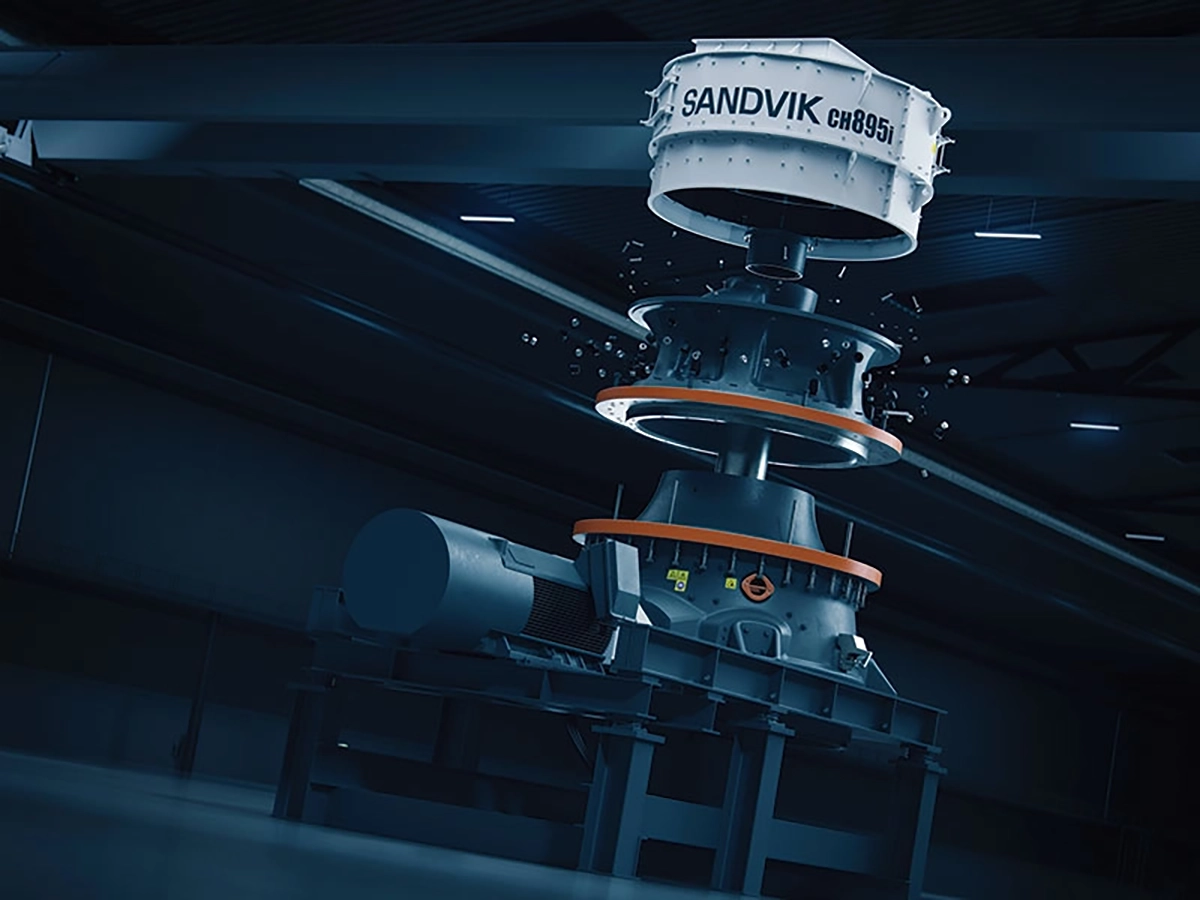
With demand from road contractors and quarry owners for application-based solutions rather than standalone products, how is Sandvik repositioning its offerings?
To meet the evolving demands of road contractors and quarry owners, Sandvik is shifting from offering standalone products to complete application-based solutions through its skid-mounted, wheeled, and track-mounted crushing & screening plants.Our Track-Mounted (Q-Range) fully mobile crushers and screens with plug-and-play ASRi/ACS automation, are ideal for fast-moving road projects and multi-site operations. Our Wheeled Plants (UJ, UH, UV Series) are modular and flexible, suited for quick setup at quarries or for temporary crushing zones. They are designed for optimized flow and reduced civil work. Our Skid-Mounted Plants are tailor-made for stationary setups with compact footprints, and ease of integration in brownfield or greenfield operations.
Key benefits are application-engineered configurations (jaw-cone-VSI-screen combos), reduced setup and relocation time, smart controls, lower operating costs with fuel-efficient drives and wear-optimized chambers. Ultimately, our solutions enable contractors to focus on output, mobility, and reliability — not just equipment, but end-to-end productivity.
How are the company’s mobile and skid plants designed for ease of transportation and faster setting up?
To further enhance operational efficiency and user safety, certain new Sandvik models are designed to enhance transport efficiency and quick setup. They have compact hydraulic powerpacks designed to streamline equipment setup, enable quick and safe deployment on-site, and are ideal for both contractors and quarrying operations where time and safety are critical.The equipment is typically configured for single-payload transport, and to reduce logistical complexity and minimizes transport costs. Their optimized transportability supports faster mobilization between job sites.
What capacities are being offered by Sandvik in its Mobile Wheel Mounted plants?
Our focus is on market-specific machine development; hence, Sandvik Mobiles continues to innovate with regionally tailored solutions and globally adaptable models, ensuring that customer needs are met with precision and performance.For instance, our US North American Bespoke Range (UH373, US373, and UK373) are specifically engineered to meet the regulatory, logistical, and operational demands of the North American market. They are designed with features that align with local transport laws, power preferences, and site conditions.
Our global market models (UJ313, UJ473, and UF3730) are built for international deployment across diverse markets. They are typically released in staged rollouts, allowing for regional adaptation and support infrastructure to be established.
This dual-track development strategy ensures that Sandvik can deliver optimized performance, compliance, and customer satisfaction—whether in a specific region or across global operations.
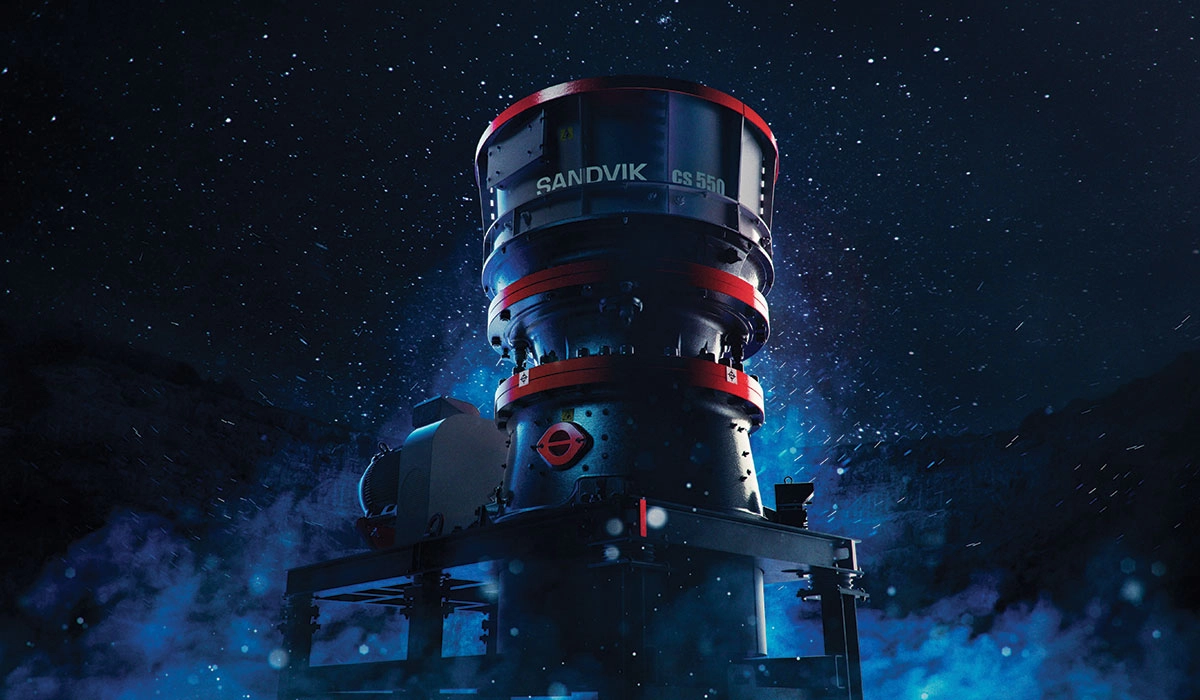
What advancements have been made in the tracks, diesel electric drives, and optimised hydraulics?
As part of our commitment to sustainability, Sandvik Mobiles is actively reducing the environmental footprint of our new machine developments compared to previous models. Our approach is multi-faceted and tailored to the needs of different markets and applications. Our Fully Electrified Solutions (example: UJ313) offers customers the flexibility to choose the optimal power source and supports both mains grid connection and onboard generator (genset) operations.Our Genset Electrical Drive Units (example UJ443E and QH443E) are equipped with onboard generators. They can operate independently or connect to the power grid for reduced emissions and fuel use.
Our Hybrid Drive Systems utilize independent electric motors to power existing hydraulic systems and provide a transitional solution between traditional diesel and full electrification.
For Hydraulic Optimization, the company has introduced TRU Tank Technology that optimizes hydraulic tank sizing, reduces oil volume requirements, and enhances system efficiency and environmental performance.
We believe that a flexible, market-driven approach and sustainability isn’t a one-size-fits-all solution. Our strategy is built on flexibility—adapting technologies to suit the specific machine type and the market in which it operates. This philosophy drives the development of more efficient, reliable, and environmentally responsible equipment.
What new maintenance and services is the company offering?
A recent development is the Sandvik EMP Kit, or Essential Maintenance Package - a comprehensive service solution designed to simplify and optimize the maintenance of Sandvik mobile crushers and screeners. It includes an All-in-One Maintenance Kit that contains all the necessary parts for up to 1,000 hours of operation. The kits are tailored to each Sandvik machine model and application. It includes engine and drivetrain components, plant maintenance part, filters, oils, and other consumables.Services include easy ordering with a single part number, color-coded and labelled for quick identification and installation, step-by-step instructions with a guide that has a numbering system and bolt kits. Packaged in one crate, it simplifies logistics and storage. Benefits to operators include, reduced unplanned downtime, improved efficiency due to streamlined maintenance planning and execution, availability of genuine Sandvik parts that ensure reliability and performance, and lower operating costs with prevention of premature failures, and extended component life.
Hailstone: RJ Williams and Sooraj Cherukoot
▼
Hailstone Forging Ahead
RJ Williams, CMD, and Sooraj Cherukoot, Head of Sales - Aggregates Business, Hailstone Innovations discuss plans for the company’s entry into global markets and expand its manufacturing facilities and parts supply with a network of warehouses.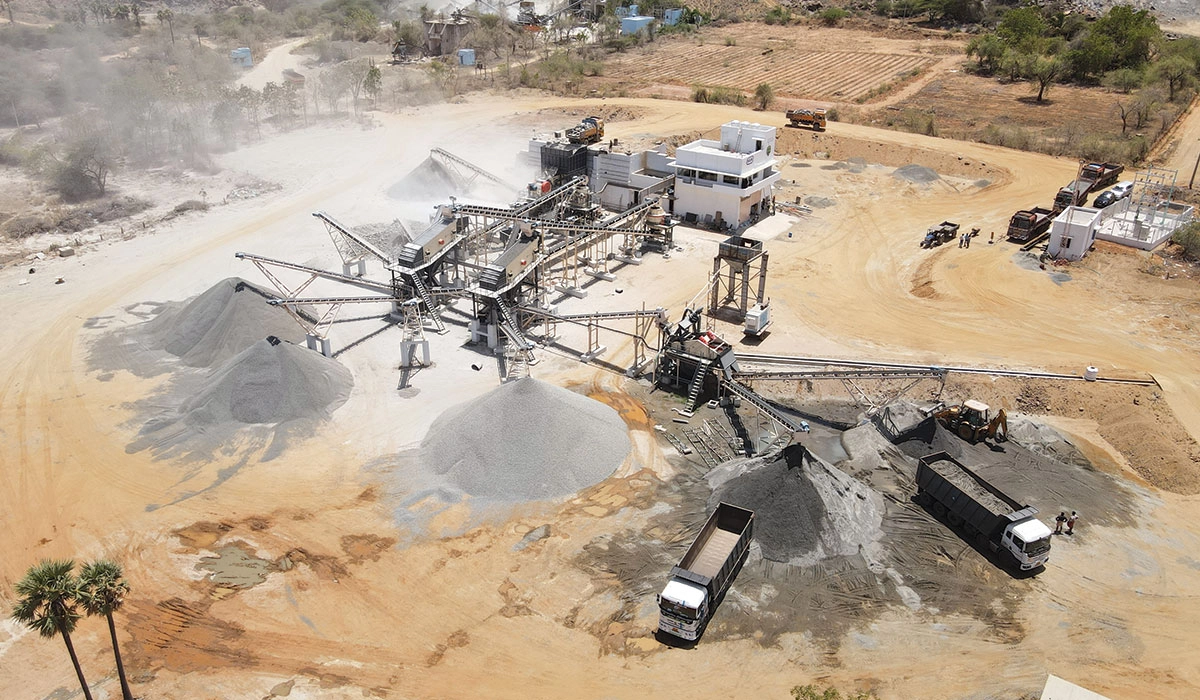
How is the mobile plant market evolving globally, and what are your company’s key offerings in this segment?
RJ Williams: The wheeled plant market is booming, with preferences varying by region. In developed countries like the US and Europe, hybrid track-mounted plants are preferred. However, in developing regions such as Brazil, Latin America, parts of Africa, and the Far East, there is a clear preference for wheel-mounted or semi-mobile plants. Even in India, semi-mobile and tracked plants are gaining popularity. Both segments are growing and complement each other.We offer mobile screens in 2-deck, 3-deck, and 4-deck configurations, with the 4-deck screen being a rare feature. Unlike most OEMs, we started with 4-deck screens to ensure customers get maximum value from their CapEx investments. Our mobile plants are also hybrid, powered either by diesel generators or direct electric power, which reduces carbon emissions. These plants can also be powered by an external engine, if required.
Please elaborate on your water recycling process and the technologies used.
RJ Williams: In Indian operations, the production of one cubic foot of sand typically consumes around 3 to 4 liters of water. This serves as a basic benchmark. While some of this water is lost in the process, we recycle the remaining water. We have thickeners and clarifiers for more efficient recycling.We also recommend civil-based water storage tanks where the used water is stored and later pumped back into the system. We also offer advanced solutions like pumps and hydro-cyclones, which further enhance water recycling and improve the system’s efficiency.
With our high-end machines integrated with the latest technology, and compliant with various international standards, we are well equipped to expand outside India.
RJ Williams
How is your company catering to the quarrying, mining, and recycling industries?
Sooraj Cherukoot: Our focus has primarily been on quarrying, but we are also expanding into the mining sector. The current ratio is roughly 70:30 or 60:40, with more focus on quarrying, though we continue to serve the mining sector across various markets. For Construction and Demolition (C&D) waste, we offer dedicated recycling solutions, such as compact jaw crushers for recycling concrete and High-Strength Steel (HSS). We also provide Horizontal Shaft Impactors (HSIs) for C&D waste recycling, with projects already underway in international markets.In addition, we offer turnkey solutions for both concrete recycling and bio-mining. We’ve completed several projects under India’s "Waste to Wealth" scheme, including overburden recycling and converting it into construction-grade materials. There's a significant market opportunity in this space, and its growth potential is promising. Moreover, we provide solutions for washing C&D waste and re-energizing old dams by converting mud into consistent-grade sand. We also process dredged sea sand after desalination and turn coal overburden and silica into sand.
How does your company address different regional demands in sand washing and material quality?
Sooraj Cherukoot: We specialize in providing customized solutions for sand washing and material quality based on the region’s specific requirements. For example, sand quality standards vary from region to region. In India, we follow IS 383 standards, while the US and Russia have their own standards.Our process begins by collecting multiple samples from different locations and conducting detailed analysis in our laboratory. Based on the client's market needs and raw material sample analysis, we propose a customized solution. We ensure that the sand meets the required standards by understanding the client's needs. Over the years, we have successfully executed many sand washing projects across regions, from Latin America to the Far East, adapting to varying feed materials.
What are the company’s assembly operations and its compliance with regional regulations?
Sooraj Cherukoot: We have 4–5 assembly units located in Kerala and Tamil Nadu. Since we don't have our own foundry, the components are outsourced, but we do plan to integrate a foundry in the long term.We collaborate with the best OEMs in the industry. Our R&D team of very senior experts is the backbone of our operations. Our engineers design the solutions and finalize the technical specifications, which are then implemented by our suppliers. Depending on the destination, such as Europe or Africa, we ensure compliance with their local regulations, like CE standards for Europe or the Bureau of Standards in countries like Kenya and Uganda.
Our quality process aligns with international standards to ensure that all our machines are export-ready and compliant during the manufacturing phase.
Our deep understanding of regional needs and local challenges enables us to provide customized products and even develop innovative solutions.
Sooraj Cherukoot
What are the company’s plans for expanding its manufacturing facilities and parts supply?
RJ Williams: We will be expanding our manufacturing facilities both in India and internationally in the coming year. Our factory, commissioned in 2021, covers about 300,000 square feet, and we are now planning to add one or two more units.We have also strengthened our warehousing network, with warehouses established in key locations — one in Africa, four across India, and one in the Middle East. This network ensures that the parts can be delivered within 24 to 48 hours, minimizing customers’ machine downtime and enhancing service efficiency.
Our operations are pan-India, and spare parts availability is supported by a reliable network of dealers who ensure quick access to parts. As for engineering support, we maintain a maximum response time of 8 hours, with even shorter times in high-demand areas; this ensures minimal downtime for our customers.
Metallurgy or Engineering: What is more important?
RJ Williams: While metallurgy is important, the real differentiator lies in engineering. We rely on countries and people to carry out casting and machining as per our engineering specifications, but the engineering itself — the vision and design behind the product — is what sets us apart. Even if material suppliers are similar across the industry, it is the quality of engineering and design that truly makes the difference.Engineering decisions have a direct impact on ownership and maintenance costs. Factors like pattern life, replacement cycles, downtime, and spare part durability all stem from engineering choices. Proper engineering leads to reduced total cost of ownership over time, as it ensures longer-lasting products with fewer replacements and service needs.
We focus on ongoing improvements in key areas like hydraulics and service intervals. We believe that innovation is necessary to stay competitive and meet the evolving needs of our customers.
What product line of Hailstone holds potential for export from India?
RJ Williams: We see promising opportunities in washing solutions and in mobile equipment. Currently, there aren't many global players offering solutions in the mobile segment—particularly track-mounted crushers in the 250 to 350 TPH range, even in Europe or in the western part of the world.Our track plants have a capacity of up to 350 tons, and our fixed plants can handle up to 1000 TPH, whether for coal or aggregates. This capacity allows us to serve both the road construction and broader infrastructure development sectors efficiently, meeting the demands of large-scale projects.
We’re also seeing opportunities in the stationary washing segment. The recent emphasis on preserving natural resources and tightening of environmental regulations in many countries has significantly increased the demand for manufactured sand and washing solutions.
India is emerging as a front-runner in this space, and we at Hailstone have already achieved considerable success in the washing segment. We offer dry classification systems, which include air classifiers and screens that operate without using any water. We also have the conventional wet classification systems, which typically use bucket-based washing that captures particles below 150 microns.
In addition, we offer the latest cyclone-based washing systems, which come with thickeners and tailing solutions to minimize the environmental impact. These systems help preserve water and ensure that the output material meets British, US, and Indian standards.
What is your strategy to enter international markets for exports?
Sooraj Cherukoot: We’re looking to expand into countries like Latin America and Africa for which we are studying customer needs and market opportunities, and looking for dealerships. We plan to tailor our products and services to cater to these specific regions, for which we will identify potential customers, understand the market pulse, and also see what our competitors are offering.Over the past few years, we’ve been actively expanding across India, and now we believe that with the technology and machines that we have, the world is our market.
McCloskey International: Jane Halfpenny
▼
McCloskey’s Global-Local Strategy Driving Market Leadership

How is McCloskey International integrating advanced technologies and sustainability into its product range to meet the demands of modern infrastructure?
At McCloskey International, we offer a comprehensive range of equipment like crushers, screeners, and stackers. These are catering to a variety of sectors such as aggregates, infrastructure, road construction, mining, demolition, and recycling.To meet the growing demands of modern infrastructure projects, we’re embedding cutting-edge technologies like Artificial Intelligence (AI), and semi-autonomous features in our equipment.
Our AI-powered telematics systems enable predictive maintenance, helping reduce machine downtime and keeping operations on schedule. Telematics also provides operators with real-time insights into equipment performance, allowing data-driven decisions and immediate alerts for any potential issues or hazards. Our semi-autonomous functions in crushers and screeners reduce operator fatigue and enhance precision, especially in remote and in high-demand environments.
Sustainability is central to our operations. Through our CarbonFit partnership, we aim to cut Scope 1 and 2 emissions by 100% by 2030. Initiatives like carbon literacy workshops, energy audits, and our ‘Green Team’ drive continuous eco-friendly innovations.
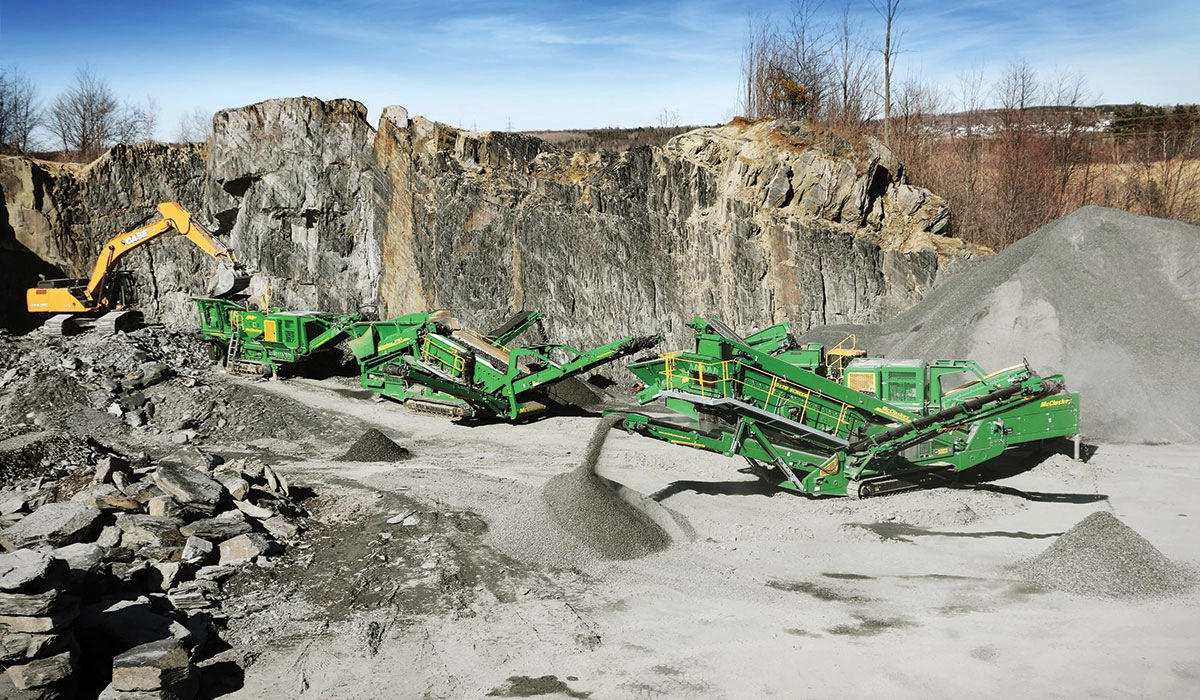
How does McCloskey leverage its global footprint and local partnerships to drive competitiveness and ensure timely customer support?
McCloskey International has one of the largest global distribution footprints in the industry, and our global-local strategy plays a key role in driving our market leadership. Our facility in Ontario, Canada, and three advanced sites in Northern Ireland, drives our ability to deliver high-quality equipment worldwide.In India, we operate from our factory in Alwar, Rajasthan, which helps us cater to regional demand. Local partnerships and a strong dealer network allow us to quickly adapt to market needs, comply with regional regulations, and deliver responsive customer support. We are also building a strong after-sales service network to ensure timely support, maintenance, and spare parts availability.
What innovations has the company introduced recently?
On the innovation front, we’ve introduced technologies such as hybrid power options and Eco-Mode to improve energy efficiency and machine durability. We have also implemented lean manufacturing practices, advanced automation, and a global transport management system to manage production costs and logistics efficiently.Strategic partnerships with tech providers have enabled us to adopt cutting-edge systems like Automated Storage and Retrieval Systems (ASRS), advanced paint shops, Pre-Delivery Inspection (PDI) with video recording, and CPQ (Configure, Price, Quote) tools to ensure quicker delivery and customization. All these initiatives enhance our ability to deliver high-quality, on-time products across the globe.
"Our ‘made in India’ production capability in Alwar, Rajasthan, ensures agile production and timely service, tailored to meet regional needs."
Jane Halfpenny
Does McCloskey have plans to offer electric or hybrid equipment in India?
Yes, we are already offering hybrid options for screeners and scalpers in India. Globally, we have a wider range of hybrid models, including crushers, which are performing successfully. We are now working to bring these models to the Indian market, ensuring they align with local needs and conditions. We are carefully evaluating the Indian market to determine the right timing and product fit before launch. Our approach is to introduce only well-tested, locally suitable solutions that align with customer expectations and operational realities in India to maximise production capacity and uptime.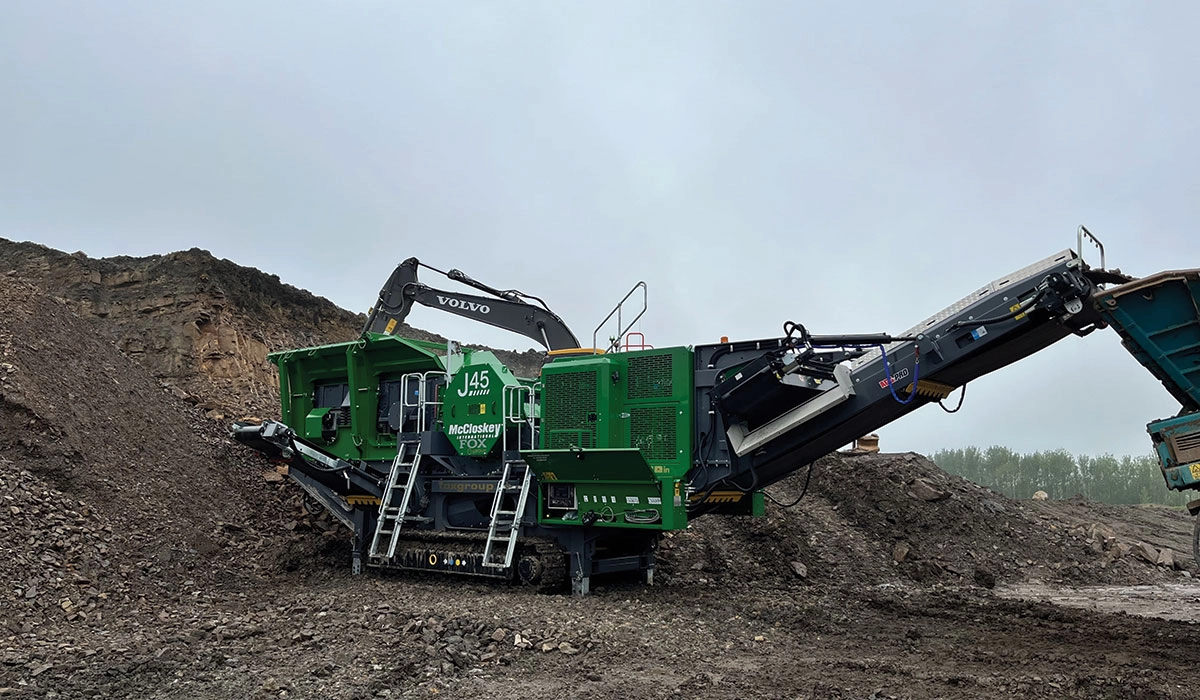
What is McCloskey’s strategic focus in India, and how do you see your portfolio growing?
In India, our strategic focus lies in the aggregates, iron ore, and bio-mining sectors. We are also exploring opportunities in slag processing, aiming to expand our footprint across these high-potential areas for which we are providing a range of crushing and screening solutions, including jaw crushers and cone crushers.However, we see a significant opportunity for growth in the recycling segment. As we expand our portfolio to include larger machines and more specialized solutions, we anticipate a broader footprint across all sectors. Our long-term strategy is guided by continuous innovation, local market insights, and a commitment to delivering value-driven solutions.
Torsa Machinery: Gopi More
▼
Many of our plants have been working ever since they were commissioned in 2003, thanks to the incorporation of advanced engineering, features, and design inputs.
Gopi More, Managing Director, Torsa Machinery
What new product developments have been made at Torsa to expand its presence in the aggregates market?
Torsa has introduced its new X18 series of modular stationary plants, specially designed to work in difficult hilly terrains. We have delivered the first unit of the 200 tph plant to a project in the northeastern state of Mizoram. Its compact footprint makes it easier to transport, assemble and commission. The response has been quite encouraging, and we are looking forward to a couple of new projects for the plant in the region.What design and technological improvements have you introduced in your plants?
We have improved the design of the crusher chambers for higher head motion, more power and force, and reduced servicing needs. Our plants have a longer life with many working ever since they were commissioned in 2003. This has been possible through the incorporation of advanced engineering design inputs and integrating advanced features.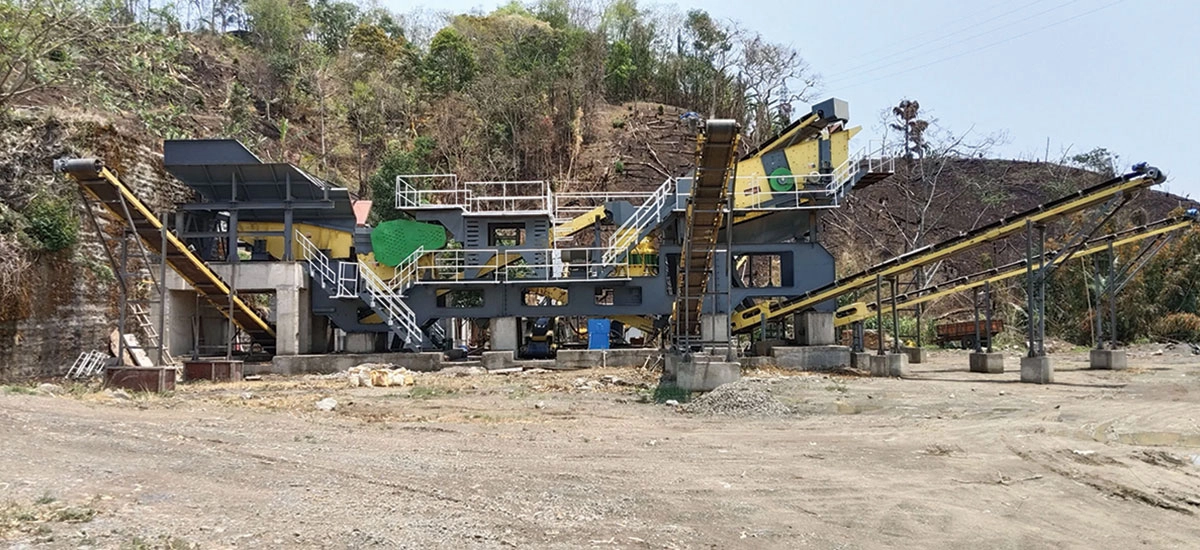
How is your new facility in Kolkata contributing to production and expansion?
Our new, fully commissioned facility in Kolkata has delivered close to 50 units so far of jaw, cone, and vertical shaft impactors ranging from 40 tph to 300 tph. We will now further expand and consolidate our business in the Eastern India market, which is also our stronghold, and in the state of Odisha. We will also be tapping the Northern and Central India markets with new dealers. In fact, our dealers not only undertake outright sales but also add value to the sales by engaging with customers to understand their requirements.For ensuring timely support and parts availability to our customers, Torsa has set up a dedicated parts supply facility in Kolkata and in Guwahati. Customers can now be assured of timely availability of Torsa plants and machineries and enjoy optimum uptime.





